#dr russell barkley
Explore tagged Tumblr posts
Text
There's this guy, Dr Russell Barkley, he does talks on ADHD. I've come across a fair bit of his content on various platforms.
Every time I see one of his videos I end up in tears. Usually within the first few minutes.
He speaks very plainly and clearly about the function of ADHD. He presents a realistic picture of what is happening and what is required.
I came across this one:
youtube
In typical fashion, I found myself crying within a few minutes.
Because other than schooling I have never had a support system. I have never had a single person in my life really hold me accountable. I have never had anyone work with me to create some kind of structure or consistency.
Everything he said, even within the first minutes, resonated with me so deeply. Because I honestly have no idea if I can do this alone. And it scares me that I might wind up getting nowhere because I am lacking in support.
ADHD is manageable. But it is damn near impossible to manage alone.
I just don't know where to go from here.
#mine#adhd#executive dysfunction#dr russell barkley#D has of course offered his support#but i cant foresee this being feasible#i dont need daily governance but i do need it regularly#multiple times a week at least#and hes a very busy guy#and i dont want to portray myself as incapable#he is also literally the only person who is offering support#and he does know how to push me effectively without inducing guilt#i dont know if its reasonable or too much to ask#i dont know if he would be happy to accommodate or if i will be painting myself into a corner as someone who is not independent enough#yes. communicating this and receiving his support would help us progress this relationship which we both want#but what if disclosing this needs removes me as an option altogether?#i dont hate having adhd#and there are positive sides to it#i hate the culture of independence#i hate the weakness attached to those who need support#and i hate the shame and guilt that comes with it#im lost#Youtube
34 notes
·
View notes
Text
Transcript: ADHD can disrupt adult life: Here’s how to own it | The Nation's Health
In addition to producing award-winning news stories, The Nation’s Health lets you hear directly from the people we’re talking to. In this episode, I’ll chat with Russell Barkley. He is a professor of clinical psychiatry at the Virginia Commonwealth University Medical Center and a leading author and researcher on attention deficit hyperactivity disorder.
We will discuss ADHD in adults — what ADHD looks like beyond childhood and implications for public health.
But, before the call, here’s a primer on ADHD.
ADHD is a common neurodevelopmental disorder. It shows up in early childhood — and it can exhibit itself in a wide range of ways, but there are three main presentations of ADHD — inattentive, hyperactive-impulsive and combined presentation.
The list of symptoms of ADHD is long. But, to provide some examples — inattentive types may have difficulty sustaining attention or make frequent careless mistakes. Those with hyperactive-impulsive presentation can feel as if they are driven by a motor; they may fidget or have difficulty waiting for their turn in social or classroom settings. It’s also common that someone with ADHD will experience a blend of being hyperactive and being unable to focus.
It’s important to note that everyone will experience some of the symptoms of ADHD at some point or another. When we’re talking about an ADHD diagnosis, a person has to have a number of symptoms that have persisted over time. And it rarely develops beyond adolescence. However, just because a person wasn’t diagnosed as a child does not mean that they have not had the disorder.
And with that, Russell Barkley has joined us.
...
How does ADHD affect adults and children differently?
You have to understand that ADHD is a disorder of self-regulation of the executive functions of the brain. And once you assume that then you know that there’s a 30-year span — at least — over which the prefrontal lobes and their executive functions are likely to be developing. And in young children, you may not see as many of the executive deficits apart from the distractibility, the impulsivity, and maybe the hyperactivity.
But as they get older, we start to see problems with time management. Three-year-olds don’t have to have a sense of time. Thirty-year-olds do. We see problems with self-organization. Self-motivation, emotion regulation and control, among others. So with those...those take time to emerge. And the adults are going to have much more difficulty in those areas and a lot less trouble with hyperactivity and with just inhibition per se.
#actually adhd#dr russell barkley#to rename adhd#cognitive attentive tempo disorder#diagnosed adhd in 2002#diagnosed autistic in 2013#born in 1979#you get the idea#but everything changed when my mentor coined neurodivergence
9 notes
·
View notes
Text
youtube
The Neuroanatomy of ADHD (recommend to watch on 1.25 speed)
Part of Dr Russel Barkley's talk about the neuroanatomy of ADHD, touching on topics of Working Memory, Motivation, Timing, and Emotional regulation. The full talk is also available on YouTube if you want to listen to it all.
I found his work very useful in understanding more about how ADHD can affect the 'expected' working functions of the brain. By being able to pin down more specifically the ways in which my brain differs from the typical, I feel better equipped to find and develop accommodations that actually work to combat them and also to accept and understand more about myself.
#neurodivergence#neuroanatomy#adhd#adult adhd#neurodiversity#adhd brain#adhd things#emotional dysregulation#working memory#time management#time blindness#task avoidance#procrastination#neurodiverse stuff#Dr Russel Barkley#neuroscience#brain function#adhd science#motivation#willpower#managing ADHD#adhd treatment#Youtube#actually adhd#actually neurodiverse
97 notes
·
View notes
Photo

2 notes
·
View notes
Text
youtube
ADHD: Essential Ideas for Parents - Dr. Russell Barkely
5 notes
·
View notes
Text
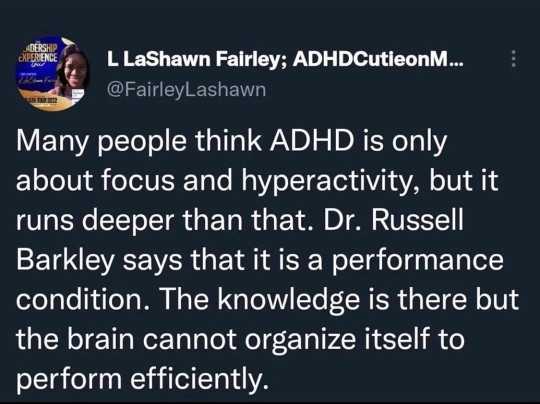
#adhd struggles#hyperactivity#concentration#dr. russell barkley#adhd brain#performance#knowledge#efficiency#organization#adhd life#adhd#twitter
10 notes
·
View notes
Text
GUESS WHO MIGHT GET A CONCERTA SCRIPT IF HER PARENTS DONT FREAK
#mwah kiss on the forehead for u dr russel barkley#id like to thank the girlie on the anxiety subreddit in mid 2020 who very succinctly told me to look up adhd
1 note
·
View note
Text
Dr. Russell Barkley on YouTube is an invaluable source for discussion of the scientific research into ADHD. What he certainly isn't is uplifting. He is very strongly in the camp of "ADHD as maladaptive/disordered" belief. Unfortunately, his dispassionate (infuriatingly dispassionate) reviews of the science do largely support this view.
I've taken a lot of solace in a sense of community with others with ADHD. I love us! But just because many of us manage to shine despite ADHD doesn't mean it's the ADHD that did it.
I've come to suspect that there's a sort of survivorship bias in how media made by and for ADHD people talks about us. That is, the people who are in the penal system, or too broke and unemployable to have stable internet access, or, well, dead, aren't the ones telling our stories. But trouble with the law, poverty, accidental death, and suicide are absolutely a well-attested part of our story. It's not all manic pixie dream girls and weird musicians.
454 notes
·
View notes
Text
Navigating ADHD can be complex, but with guidance from Dr. Russell Barkley, a renowned ADHD expert, it doesn't have to be. In his comprehensive overview, Dr. Barkley explains the critical role of environmental adaptations and structured routines in managing ADHD effectively. Learn why creating external structures and modifying your surroundings can significantly improve daily functioning for those with ADHD.
From visual reminders to clear and concise planning, discover practical tips that can help bridge the gap between knowledge and action. Dr. Barkley's expert advice sheds light on the importance of consistency in routines and the beneficial impacts of medication, providing a robust framework for managing ADHD in everyday life.
60 notes
·
View notes
Text
managed to watch two of those videos of dr Russell Barkley talking about adhd. needed five tissues and worried my cat into laying on me purring and bumping me with her head... might try to watch more tomorrow. really good insightful. i just can't cry more tonight. I'm very tired and i don't feel like setting myself up to ugly sob again
3 notes
·
View notes
Note
Hi, do you have any tips or advice on how to get assessed for ADHD for a woman in her 30s? Thanks in advance and apologies for the sudden message.
Hello! I'm sorry I'm only seeing this message now!! I sincerely hope my response isn't too late. So --I'm not qualified to give medical advice of any kind. All I can do is report on my own experiences, and to be frank...my experiences in this area are disheartening. I had to kick and scream for years to even be assessed by my GP, and then for several more years after that for that assessment to be taken seriously. Since my diagnosis in 2019, I have been receiving treatment for only a cumulative 8 months (and only 3 of them through the GP in question). The gaps in that timeline were filled with the most insulting, time-wasting ableist bullshit imaginable. I won't get into it.
In the end, I had to turn to private healthcare, and while I'm profoundly and infinitely grateful for the care I have since received (stand out example: they initially declined my request to be prescribed an anti-depressant, and just from reading my tone when I said 'okay' to that [heartbreaking] news, the nurse discerned that something was deeply wrong, asked me about it ("What are you feeling?"), and then re-presented my case to the pharmacist with the new information. I had my anti-depressants a day later, and no single act by another person has ever had a greater positive impact on me. I like to think I would have stuck it out no matter what, but there is a chance this person saved my life), the fact remains that I'm paying hundreds of dollars every month for support that is supposed to be free, in my country.
If I didn't have insurance through my work, I would not be able to afford this. That nurse would never have heard me say 'okay.'
So. On top of not being qualified to give medical advice, I don't feel qualified to give encouraging advice, either.
I wish I was.
But...That's just what happened to me. That doesn't mean that's what's going to happen to you. I'm no doomsayer: over these last few years I've met so many kind, compassionate, informed doctors --who were not MY doctors and couldn't help me, but who must have been absolute gifts to their own patients. I hope you will be lucky and get one of these doctors, or REALLY lucky and already have one. Someone who is listening and who knows their shit can make all the difference. One nurse made all the difference for me.
This is the only 'advice' I feel comfortable giving: become as informed about ADHD as you can --the symptoms, co-morbidities, treatments, everything, everything-- before seriously engaging with any doctor about it. That way you're empowered to advocate for yourself, should the need to do so arise. And if the worst happens and your doctor starts blowing smoke up your ass --well, you'll recognize it right away, and you can respond accordingly. Knowledge is protection; protect yourself from what happened to me.
Conversely, you'll also be able to tell when they DO know their shit, and they ARE listening to you. And that moment is so affirming, it's worth studying up for.
The better informed you are --with correct, up-to-date sources-- the more you will trust yourself and the worth and validity of your own experience...which is invaluable when navigating any kind of health issue, but especially disability.
So...yeah.
As for the research itself: I'm going to recommend Dr. Russell Barkley as a starting point. He's the name every competent doctor has given me. A lot of his work is widely available on free platforms like YouTube --anything else, I think I'd better leave to the experts, like him, to say.
#about me#adhd stuff#cw suicide#just a brief inference of the possibility but better safe than sorry
2 notes
·
View notes
Text
⚠️ CONTENT WARNING ⚠️: medication talk, health talk, mental health talk
Yesterday I really needed to shower, but I just... couldn't. I tried the '1 2 3 GO!' method and the 'im here so might as well just do this too' method, but they didn't help. They have helped before in other situations, so I still consider them to be valuable mechanisms. Instead, I threw myself into the bathroom and scrubbed it clean from top to bottom. I never washed myself though lol. But my bathroom is now spotless, and it did need it.
I'm trying to see this as a positive; I didn't do what I was SUPPOSED to do, but I DID do something beneficial. It's a textbook symptom of ADHD though, and it causes problems down the line. I need to be clean to be healthy and to be active in society. I can't afford to replace one important thing with another just because the other thing is also good.
It brings to light where I stand with my diagnosis and treatment so far. I've been doing my own research via books and internet, and everything I've read points to the fact that ADHD needs to be treated with the proper medication. And for most people with ADHD, the proper medication is some form of stimulant. My doctor was wary about my physical health if I started a stimulant, which I appreciate, but my psychiatrist and a leading researcher whom I trust (Dr. Russell Barkley; PLEASE take time to look into his work, he's amazing) firmly believe that the advantages provided by a stimulant medication will far outweigh the concerns of disadvantages.
I've been on a non-stimulant medication for almost a month now, with zero improvement in behavior, or even a noticeable difference either way. It's very frustrating; I unintentionally self sabotage on a regular basis, and with the start of this new job opportunity, I am desperate to be my most high functioning and dependable self. The bee farm is such a good opportunity, I don't want to blow it. So I feel I have a lot riding on my healing process, unfortunately.
But after talking to family and my husband, I've decided asking my doctor to start me on a stimulant medication is the right way for me to go. There is a lot of stigma attached, and I do feel myself pressured by it, but I have to trust the people I have included in my inner circle to have what's best for me in mind, since my self doubt overpowers my own judgement still. I am not drug seeking simply because I am ready to try something slightly controversial which may significantly improve my living experience. I have been validated and verified by unrelated professionals, and I do struggle with an incurable illness. I do deserve to give myself the support I need. I have to trust that somehow. These are my shaky affirmations lol.
So at my next appointment, on Monday actually, I'll be switching up my meds and hoping for the best 🤞. I am honestly nervous that my doctor will judge me lol. I shouldn't be; she's been super supportive of this journey, including recommending the specialist psychiatrist that I saw who helped me understand my diagnosis. It's just strange fears I suppose.
6 notes
·
View notes
Text
Hey you might want to take a look at this video from Dr. Russell Barkley (ADHD expert extraordinaire) about the study. It's got some issues in terms of correlation and does not account for people who were diagnosed earlier in life. The average age of the participants was old enough that it's possible they could have started developing dementia symptoms already.
Also people with ADHD are less likely to take care of themselves in ways that increase risks of dementia (higher rates of depression, T2D, smoking/other substance use). I don't think this was accounted for in this particular study.
youtube
reminder that adhd medication isn't a luxury or preference, but a lifesaving medication. a 10 year long study in the usa showed that, when properly medicated, the rate of car crashes people with adhd get into goes down significantly--men's rate drops by 38%, and women's by 42%. the med shortage, denial of meds by doctors, rising prices, and war on drugs has killed--with such a car dependent society, not driving frequently isn't an option, which means we need better healthcare and need it now.
https://shorturl.at/8VD8B
edit because i forgot to explain: short link is to an article by the washington post, it should be free to read
30K notes
·
View notes
Photo
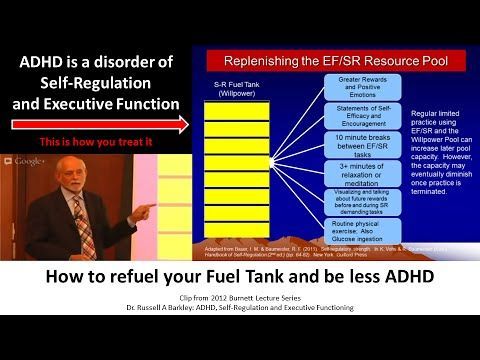
(4) This is how you treat ADHD based off science, Dr Russell Barkley part of 2012 Burnett Lecture - YouTube Cool Creatives https://www.youtube.com/watch?v=_tpB-B8BXk0
0 notes
Text
Dr. Russel Barkley recommends giving kids gatorade or other sugary drinks to sip on during tests. I started doing that for things like job interviews, taxes, and any other tasks that require brain power and focus. It's helped!
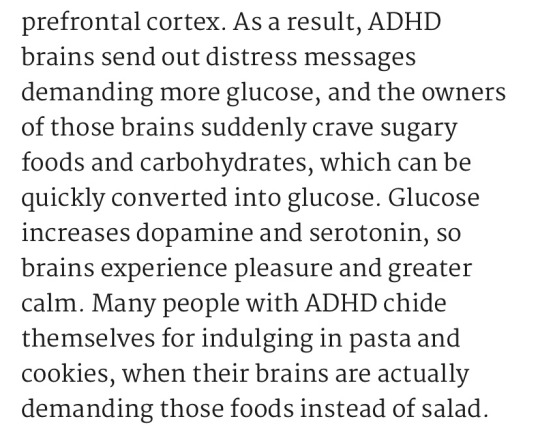
UH WHAT
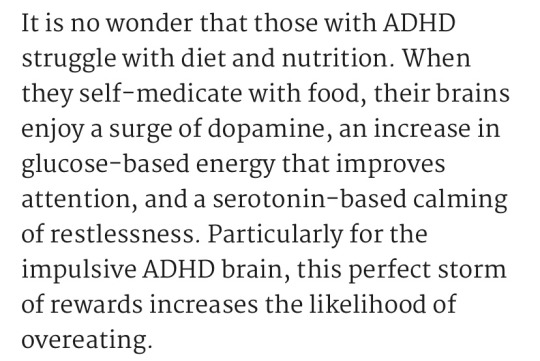
UH...... WHAT.........
121K notes
·
View notes
Text



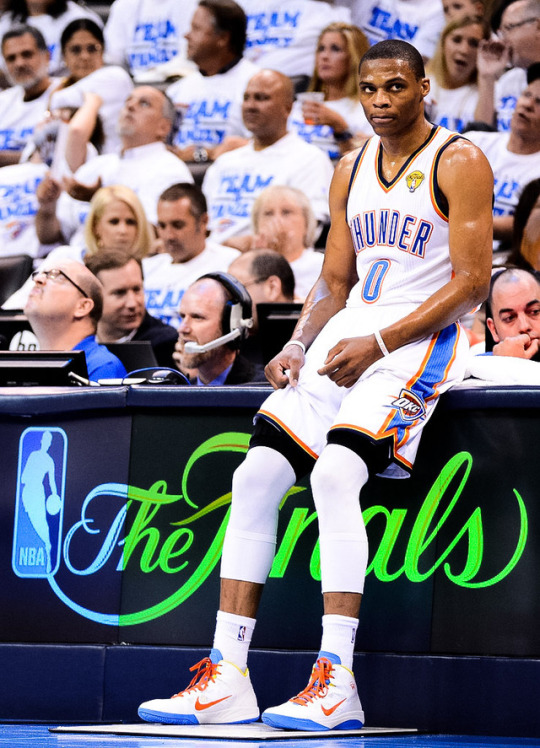






NBA Finals Photo Dump 📸📹
#hoops media#nba#basketball#michael jordan#hoops allure#sports#kobe bryant#throwback#vintage#rasheed wallace#NBA finals#championship#Hoops Media Photo Dump#love#dirk nowitzki#Tony Parker#Dr. J#Russell Westbrook#Charles Barkley#Paul Pierce#Kobe Bryant#Allen Iverson#latrell sprewell#New York Knicks
354 notes
·
View notes